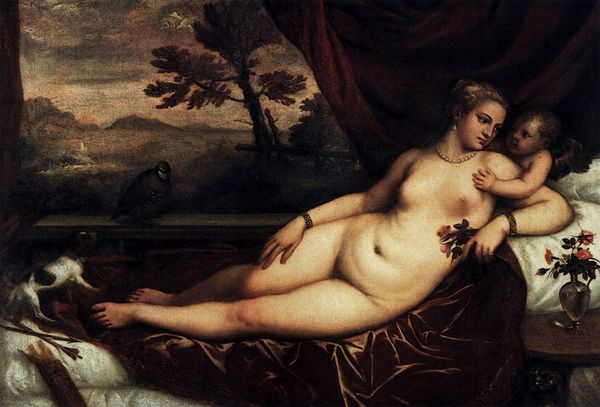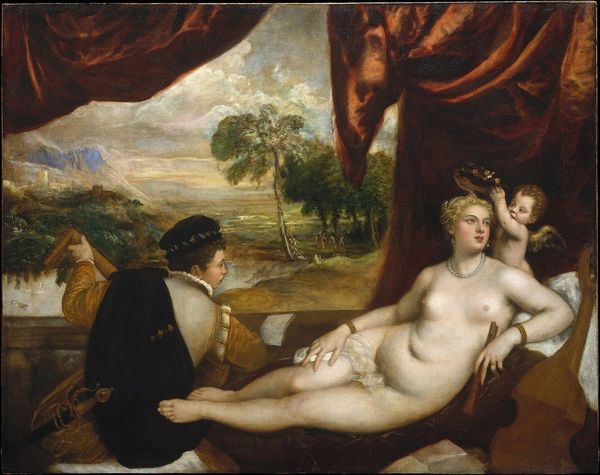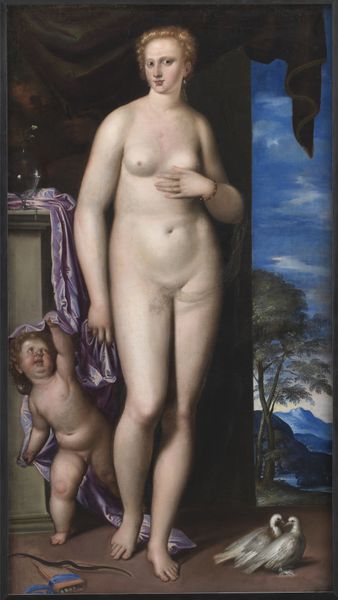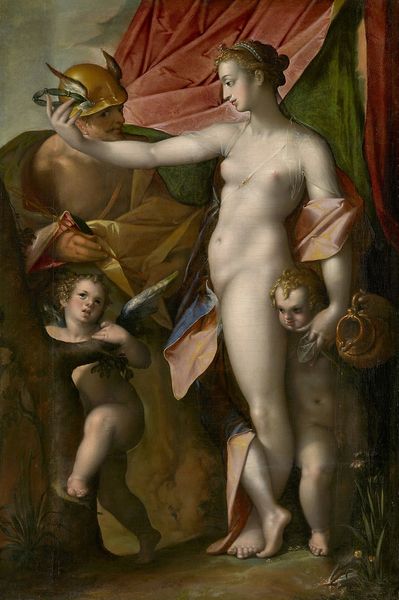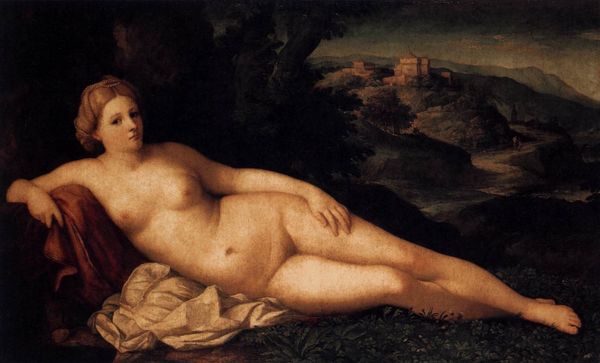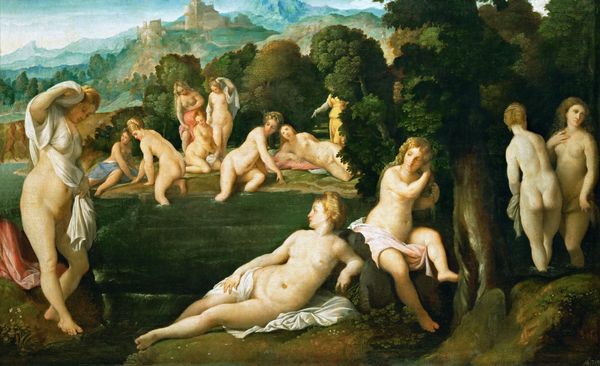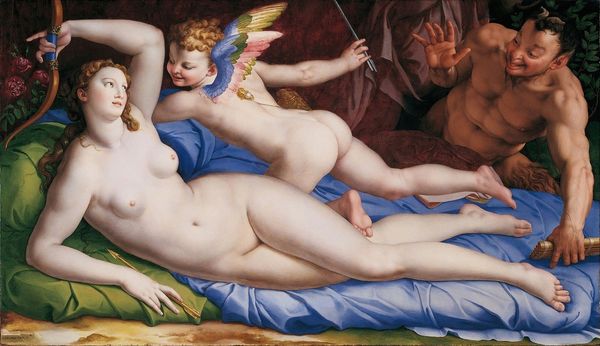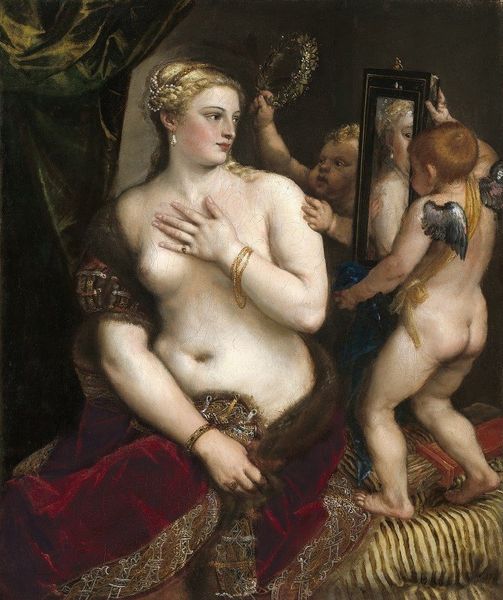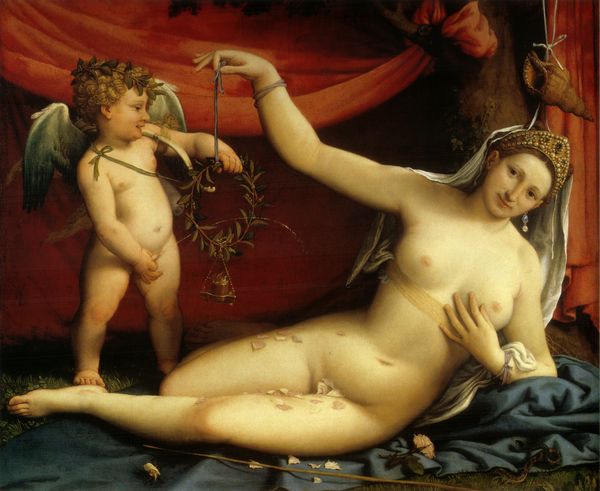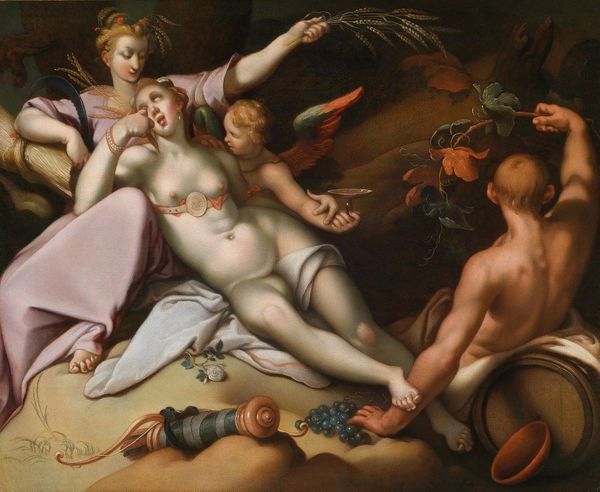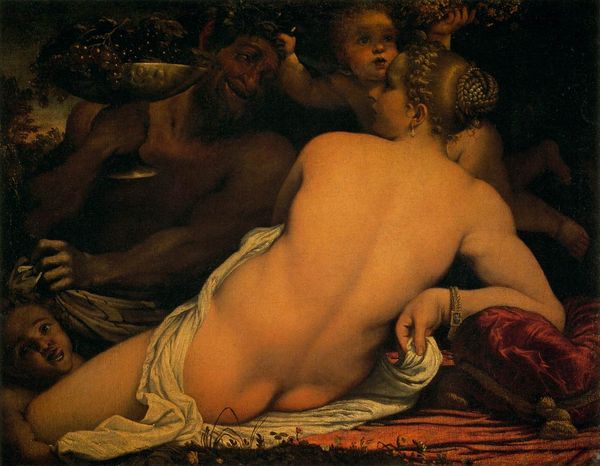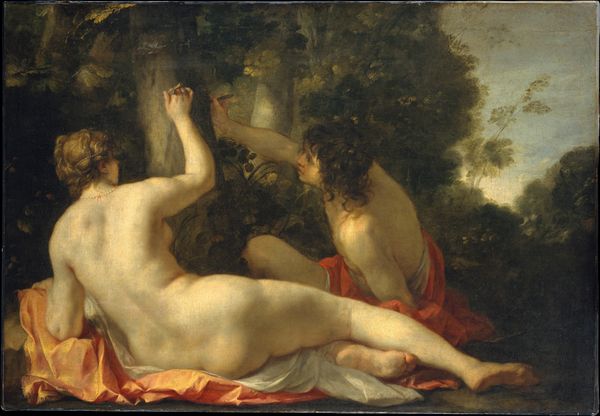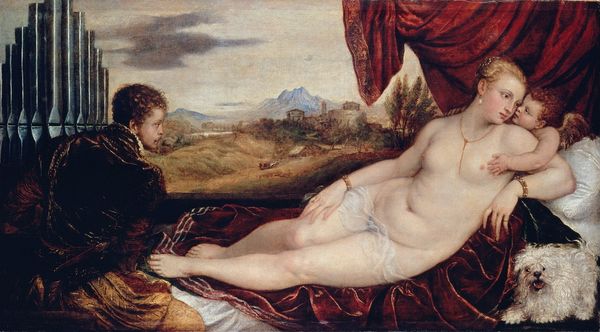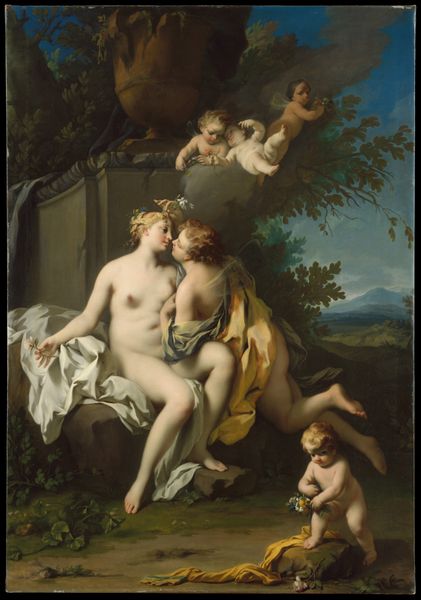
painting, oil-paint
#
allegory
#
fantasy art
#
painting
#
oil-paint
#
fantasy-art
#
mannerism
#
figuration
#
painting painterly
#
history-painting
#
nude
Copyright: Public domain
Editor: Here we have Bartholomeus Spranger's "Diana Resting After the Hunt," painted in 1611 using oil. There's something about Diana's gaze that feels both weary and knowing. What strikes you most about this piece? Curator: Beyond the technical skill, consider how Spranger positions Diana within a web of power dynamics. Her rest isn't simply relaxation. Who serves her? And who is conspicuously absent from the hunting party, or relegated to the sidelines? Editor: The male figure on the right certainly looks subservient compared to Diana. Are you suggesting this is more than just a scene of a huntress taking a break? Curator: Precisely. Spranger was working in Prague, a center of power and patronage. How does the painting reflect the politics of its time, or the way femininity was perceived, both idealised and policed, at court? Also, reflect on who Diana is an allegorical symbol for? Editor: I hadn’t thought of it that way. Seeing it through a lens of power really shifts my understanding of the whole composition, it makes the whole work resonate with questions around privilege and access. Curator: Consider this painting as a form of early PR for female authority, carefully staged and mythologized for a specific audience within very strict ideological and social limitations. Who has control in representing who, and what that meant then, and potentially now. Editor: That's fascinating, I didn’t see it as that explicit a statement before, more subtle, almost covert, now I see that maybe Spranger's not just depicting a scene but is also participating in shaping perception, which changes the value of this image entirely. Curator: Exactly. Thinking about these issues helps to place it within a larger art historical context as more than just an idealized image, and into a site of a bigger, perhaps current dialogue around gender and identity. Editor: Definitely. I'll never look at classical depictions of goddesses the same way again! Thanks!
Comments
No comments
Be the first to comment and join the conversation on the ultimate creative platform.
